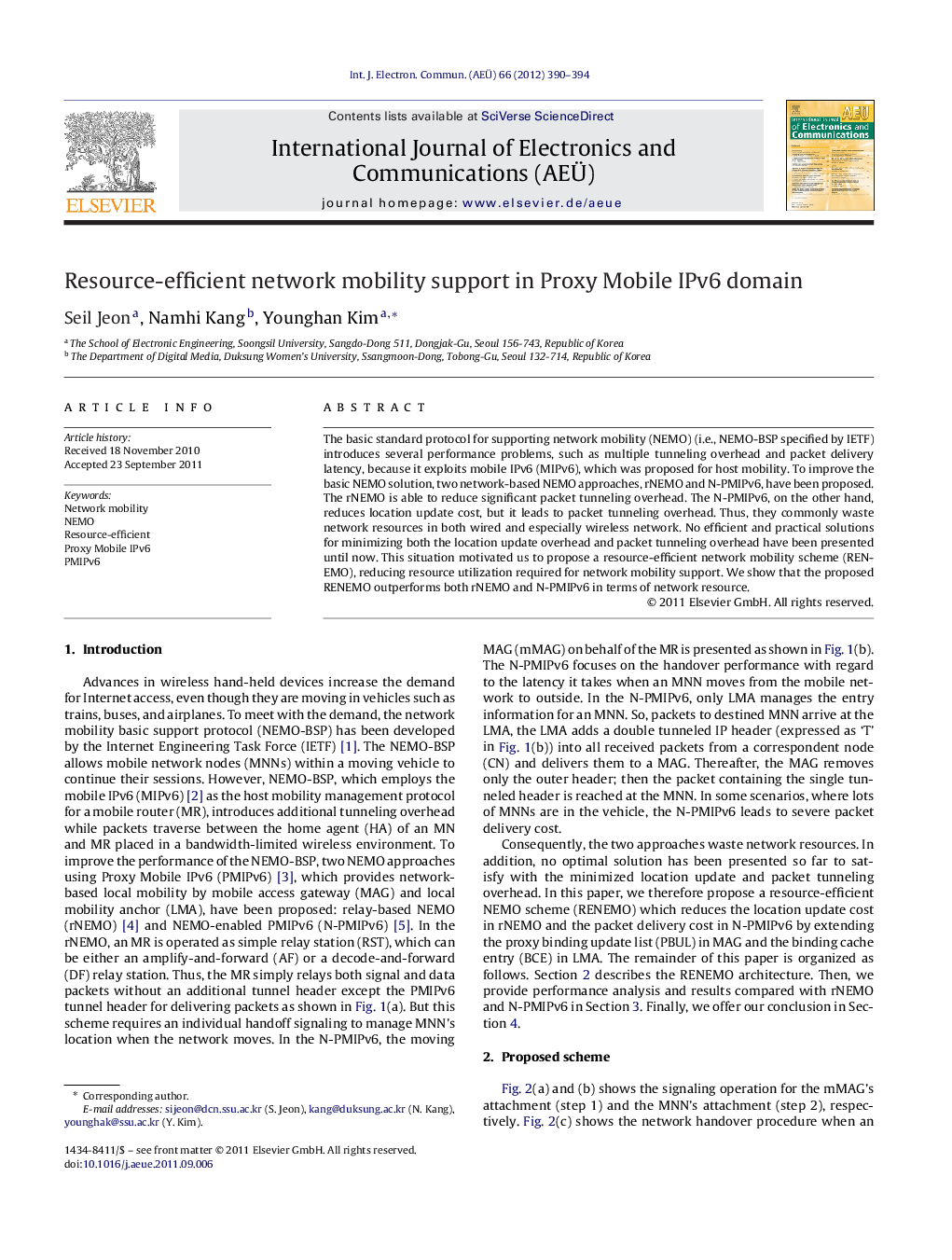| Article ID | Journal | Published Year | Pages | File Type |
|---|---|---|---|---|
| 449090 | AEU - International Journal of Electronics and Communications | 2012 | 5 Pages |
The basic standard protocol for supporting network mobility (NEMO) (i.e., NEMO-BSP specified by IETF) introduces several performance problems, such as multiple tunneling overhead and packet delivery latency, because it exploits mobile IPv6 (MIPv6), which was proposed for host mobility. To improve the basic NEMO solution, two network-based NEMO approaches, rNEMO and N-PMIPv6, have been proposed. The rNEMO is able to reduce significant packet tunneling overhead. The N-PMIPv6, on the other hand, reduces location update cost, but it leads to packet tunneling overhead. Thus, they commonly waste network resources in both wired and especially wireless network. No efficient and practical solutions for minimizing both the location update overhead and packet tunneling overhead have been presented until now. This situation motivated us to propose a resource-efficient network mobility scheme (RENEMO), reducing resource utilization required for network mobility support. We show that the proposed RENEMO outperforms both rNEMO and N-PMIPv6 in terms of network resource.
